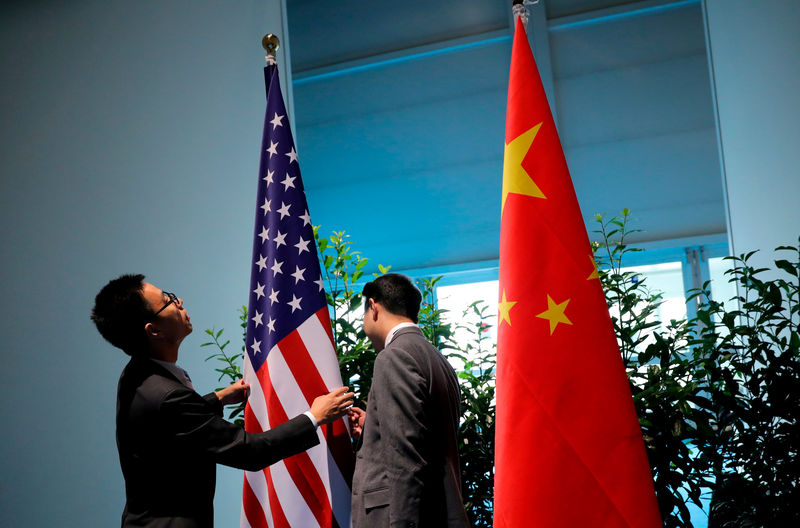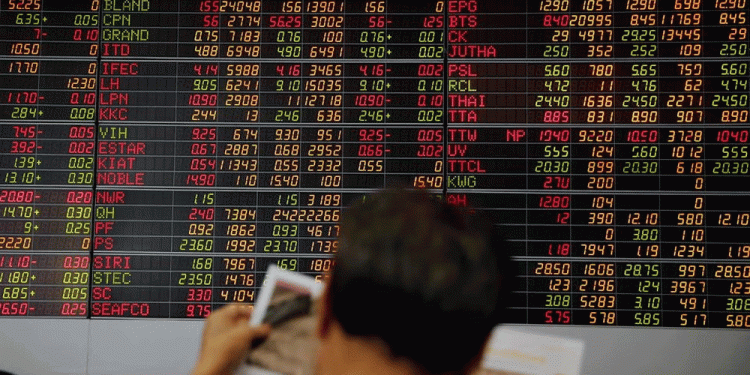 © Reuters. FILE PHOTO: Chinese officials prepare the flags for the China-U.S. bilateral meeting at the G20 leaders summit in Hamburg
© Reuters. FILE PHOTO: Chinese officials prepare the flags for the China-U.S. bilateral meeting at the G20 leaders summit in HamburgSHANGHAI (Reuters) – A Chinese Communist Party journal said on Saturday that the country may experience near-term pain from trade friction with the United States, including a negative impact on financial stability, but China’s stable growth trend would not change.
A commentary in the ideological journal Qiushi, or Seeking Truth, warned that trade and economic friction between Washington and Beijing could undermine “China’s economic growth, financial stability, trade and investment, employment and people’s livelihoods,” particularly in industries exposed to tariff action by the United States.
“But at the same time, we must see that the fundamentals of China’s economic development have not changed. In particular, China’s economic structure has been significantly improved in recent years, which has effectively improved its ability to withstand external shocks.”
The United States had “provoked” these frictions, but China would accelerate research and development of core technologies, optimize its industrial structure, promote market diversification, and strengthen support provided by domestic demand to “turn bad into good,” the commentary said.
It said that China’s macroeconomic management had “sufficient policy space” to counter negative impacts, with fiscal policies potentially playing a “greater role in expanding domestic demand and restructuring”.
“Unblocking the transmission mechanism of monetary policy and guiding funds to invest in the real economy, particularly small and micro-enterprises, can alleviate the problem of difficult or expensive financing and strengthen the ability of the financial industry and the real economy to withstand risks,” it said.
“A just cause finds much support, an unjust one finds little,” the commentary said, quoting the Chinese philosopher Mencius. “Over time, Sino-U.S. economic and trade frictions will surely continue to develop in a direction favorable to China.”
In a separate Qiushi commentary on Saturday, Chinese Commerce Minister Zhong Shan called for “proactively expanding imports to promote balanced trade”.
China must “strengthen the protection of intellectual property rights, protect the legitimate rights and interests of foreign investors, and create a good business environment for investing in China,” Zhong wrote.
China will “greatly relax market access” and “steadily expand the opening of the financial industry, continue to promote the opening of the service industry and deepen the opening up of the agricultural, mining and manufacturing sectors,” he said.
China has made moves to ease foreign investment curbs amid Beijing’s trade dispute with the United States.
But an official said earlier this year that China’s opening of its financial sector to foreign banks and financial institutions would be based on the principal of reciprocity, and would not reward protectionism by other countries.
Fusion Media or anyone involved with Fusion Media will not accept any liability for loss or damage as a result of reliance on the information including data, quotes, charts and buy/sell signals contained within this website. Please be fully informed regarding the risks and costs associated with trading the financial markets, it is one of the riskiest investment forms possible.
Source: Investing.com



























